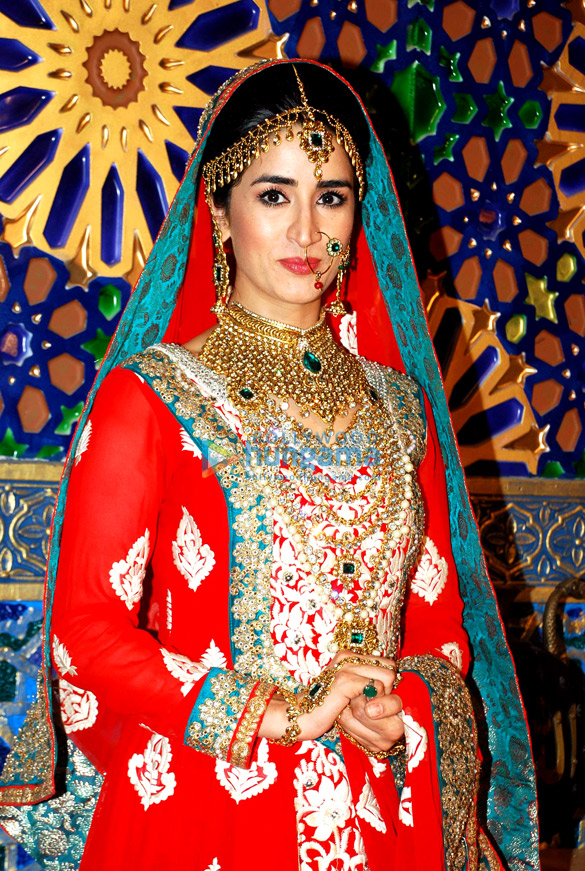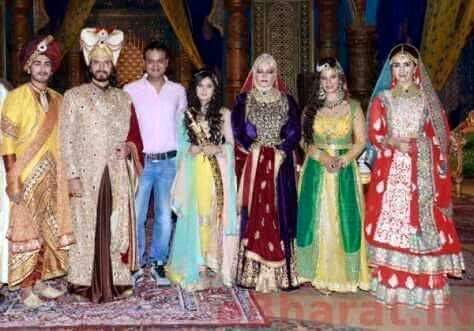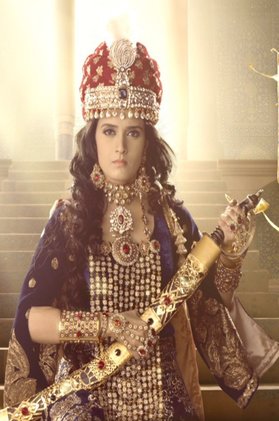

While such a role reversal with the hero kneeling at his beloved's feet may not be acceptable to male chauvinist audiences, the love affair is portrayed so discreetly to make it almost antiseptic.

In a departure from the usual Salim-Anarkali love epics of yesteryear, this time it is the queen who fails in love with an Abyssinian slave Yaqut (played by Dharmendra in an Afro wig and varying shades of black grease paint). Fired by his imagination Amrohi has concocted a "sweet and tender" love story set against a backdrop of a royal and bloody costume drama. The truth is that history leaves almost no description of Razia or her reign - in fact historical sources only make a passing reference to her presence in the long annals of the Slave dynasty.

Although the director defends his choice of the lead player ("who else," he asks, "has the royal carriage, the regal face and flashing eyes?") and says he is almost completely satisfied by her Urdu diction and acting ability, it is clear to anyone who will check the records that Amrohi has on the whole spun a yarn.


 0 kommentar(er)
0 kommentar(er)
